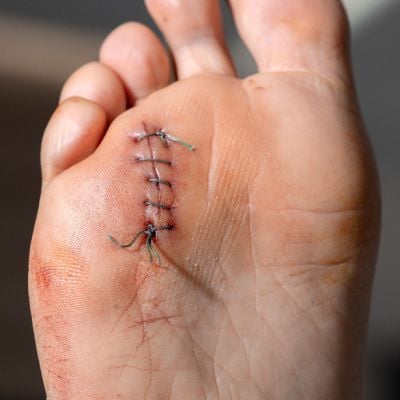 Neuroma, a condition characterized by the thickening of nerve tissue, can cause discomfort and pain. This comprehensive guide explores the intricacies of nerve surgery as a solution for managing and alleviating neuroma symptoms.
Neuroma, a condition characterized by the thickening of nerve tissue, can cause discomfort and pain. This comprehensive guide explores the intricacies of nerve surgery as a solution for managing and alleviating neuroma symptoms.
A Closer Look at the Condition
Understanding neuroma involves delving into the anatomy of nerves. We'll discuss how factors like compression or irritation can lead to the development of a neuroma commonly found in the feet, between the toes.
Signs and Symptoms of Neuroma
Detailing the unmistakable signs and symptoms of neuroma, including sharp, burning pain, tingling sensations, and the feeling of a foreign object inside the shoe. This section aims to help readers identify potential neuroma-related discomfort.
Diagnostic Approaches for Neuroma
- Clinical Assessment: Discuss how healthcare professionals conduct a thorough examination, taking into account medical history and symptoms.
- Imaging Studies: Exploring the role of imaging techniques like ultrasound and MRI in confirming the presence and location of neuromas.
Conservative Treatments for Neuroma
- Orthotic Inserts: Examining the use of custom orthotic inserts to support and alleviate pressure on affected nerves.
- Footwear Modifications: Discuss the importance of choosing footwear with a wide-toe box and low heels to reduce compression on the affected area.
- Physical Therapy: Exploring exercises and stretches that may help alleviate symptoms and improve foot mechanics.
When Surgery Becomes a Viable Option
- Indications for Surgery: Highlighting scenarios where conservative treatments may not provide sufficient relief, making surgery a viable option.
- Types of Nerve Surgeries: Discuss common surgical approaches, such as neurectomy, where the affected nerve is removed, and decompression, aiming to relieve pressure on the nerve.
Preparing for Neuroma Surgery
- Consultation and Evaluation: Emphasizing the importance of a comprehensive pre-surgical evaluation, including discussions about medical history and potential risks.
- Understanding the Procedure: Providing an overview of what patients can expect during the surgery, from anesthesia to postoperative care.
Postoperative Care and Recovery
- Managing Discomfort: Offering insights into pain management strategies post-surgery, including prescribed medications and the use of ice.
- Physical Therapy and Rehabilitation: Discussing the role of physical therapy in promoting optimal healing and preventing complications.
Potential Risks and Complications
Acknowledging the potential risks associated with neuroma surgery, from infection to nerve damage, and emphasizing the importance of open communication with the healthcare team.
Long-Term Outcomes and Lifestyle Adjustments
- Expected Results: Providing realistic expectations for postoperative outcomes, including pain relief and improved mobility.
- Footwear and Activity Modifications: Advising on lifestyle adjustments, such as wearing supportive shoes and avoiding activities that may exacerbate symptoms.
Conclusion
In conclusion, neuroma surgery emerges as a viable and effective option for individuals grappling with persistent neuroma symptoms. Patients can actively participate in their healthcare journey by understanding the condition, exploring conservative treatments, and considering surgery when necessary. Seeking guidance from experienced healthcare professionals ensures personalized care and enhances the likelihood of successful outcomes, paving the way for a life free from neuroma-related discomfort.
Disclaimer:
The information on this website is provided for educational and information purposes only and is not medical advice. Always consult with a licensed medical provider and follow their recommendations regardless of what you read on this website. If you think you are having a medical emergency, dial 911 or go to the nearest emergency room. Links to other third-party websites are provided for your convenience only. If you decide to access any of the third-party websites, you do so entirely at your own risk and subject to the terms of use for those websites. Neither Viera Podiatry, nor any contributor to this website, makes any representation, express or implied, regarding the information provided on this website or any information you may access on a third-party website using a link. Use of this website does not establish a doctor-patient relationship. If you would like to request an appointment with a health care provider, please call our office at (321) 253-4973.
